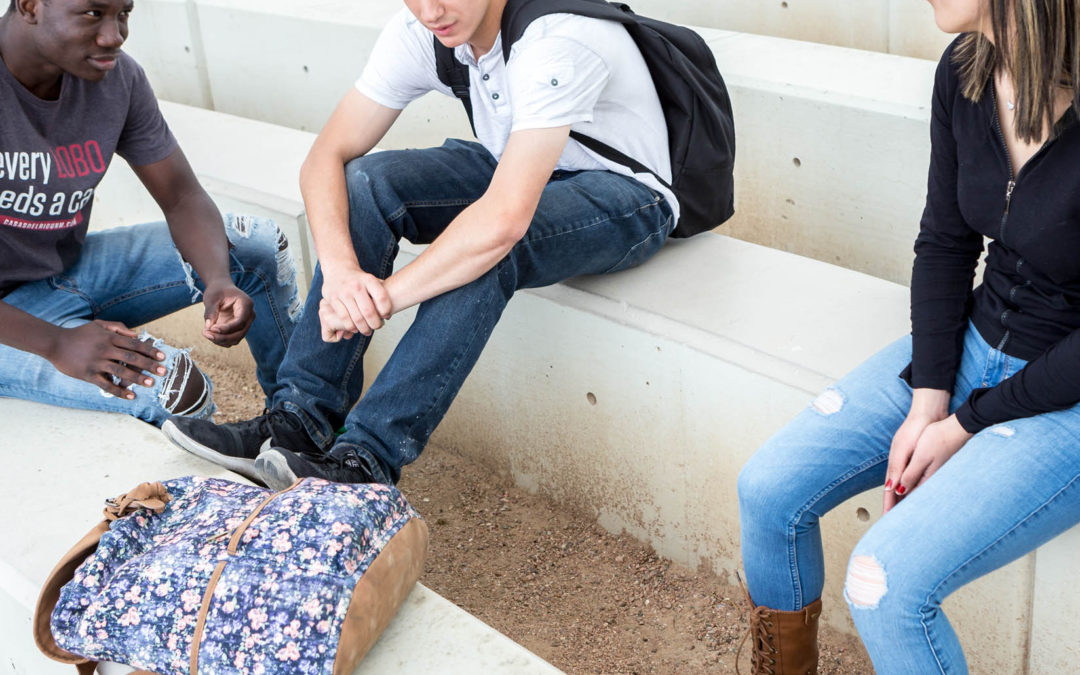This is the story of how one school in southwestern New Mexico changed their culture
Flor Gonzalez was in tears after being kicked out of the principal’s office in a rural school in southwestern New Mexico in 2015. She wasn’t a student, she was an adult educator with La Piñon who taught young people about consent, healthy relationships, and bullying. The principal was upset about the survey given to the students before Flor’s training which asked students to identify their gender as male, female, or nonbinary. “We don’t have students in this school that are not male or female.” The principal said to Flor.
Flor had been teaching students in this school the skills to understand and prevent sexual assault, harassment, and abuse. When the principal saw this new survey, she insisted it was inappropriate to ask about sexual activities because “students didn’t think about that.” The principal believed that asking about sex and sexuality put ideas into students heads, and she thought it would be better not to talk about the issue. The principal was so upset she insisted Flor return the next day at 7am to apologize to the teachers of the school.
“I felt like I was in front of a firing squad.” Flor remembers. So, she showed them the New Mexico Youth Risk and Resiliency data that shows that transgender students are a part of every school in every county in this state. She told the teachers, “transgender students are here, and you have to have an honest conversation about it. We don’t have to agree, but we do have to treat everyone as decent human beings.” That’s when the teachers’ hands started to go up. What ensued was an honest conversation. Flor modeled how to talk about sexuality, bullying, and power dynamics. The teachers wanted to know if Flor could come and teach in their classrooms, too. Now, this school incorporates sexual violence prevention education for all freshmen. Additionally, the Junior Reserve Officers’ Training Corps (JROTC) teacher at this school has taken what he learned from Flor and incorporated into his own curriculum.
Flor originally saw her work as teaching students, but through this experience saw the importance of teaching administrators and staff about how they could talk about sexuality and gender to make the school safer for all students. Now, La Piñon trains teachers and staff at all the schools they work with a shortened version of the curriculum before teaching young people. She says to teachers, “You might hear things that make you uncomfortable—and that’s ok. We can have healthy conversations about your views. Please don’t interrupt when we’re doing our thing.” She explains why it is important not to undermine the content. Teachers learn too, and some male teachers have said to Flor, “ I realize now that I have to be more aware of what I say.“
For many communities, it is taboo to talk about sexuality, gender identity, and sexual assault. In actuality, talking about these topics creates a safer environment for all students. When communities teach healthy sexuality and consent, the community members experience less sexual violence. Flor teaches an 8-week program called, “We End Violence” to high school freshmen where students can talk freely without judgment. They talk about the root causes of bullying—because someone is different— and power dynamics. Flor says, “When I hear a student victim blame, I say, ‘Tell me more about that.’ and let them define the reason. When they say it out loud, they realize what they mean.” We all have to unlearn victim-blaming. It is so normalized that we can’t even see it until someone pauses and asks, “tell me more.”
Each year, La Piñon is invited back to teach at the school that made Flor cry. She is not crying anymore. Through personal teacher referrals, more and more schools request sexual violence prevention education. It starts with us to change norms around what topics we can discuss at school. Talking about sexual violence is the first step in changing norms about what is and is not acceptable in our communities.
Find resources for adolescents and mentors at www.ItStartsWithUsNM.org/tools/ and follow on Instagram, Facebook, and Twitter @StartsWithUsNM.
Blog by Alex Ross-Reed (she, her, hers), a sexual violence preventionist, health educator, writer, and artist living in Albuquerque, New Mexico.


Recent Comments